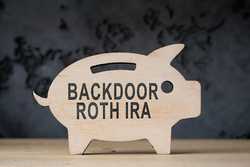- Positive cash flow
- Capital appreciation
- Potential tax breaks
6 Types of Real Estate Investments To Know Of


Our evaluations and opinions are not influenced by our advertising relationships, but we may earn a commission from our partners’ links. This content is created by TIME Stamped, under TIME’s direction and produced in accordance with TIME’s editorial guidelines and overseen by TIME’s editorial staff. Learn more about it.
Real estate investors buy, own, manage, rent, and sell real estate—either directly or indirectly—to generate income and/or capital gains over time. No matter what type of real estate investment you choose, it can help diversify your portfolio, reducing your overall investment risk.
Of course, the best places to invest in real estate can depend on your risk tolerance, goals, and the amount of time and money you want to invest. Here are six options to consider if you’re considering investing in real estate.
Residential real estate refers to real estate properties that are used for housing. Investments are usually active (not passive), meaning you’ll likely spend substantial money and time generating positive cash flow and profits. Some common ways to invest in residential real estate include long-term rental properties, short-term rentals, i.e., Airbnb, vacation properties, and house flipping.
A long-term rental property can be a single-family detached home, duplex, townhouse, or condo. You make money through rental income—and property appreciation if you decide to sell.
Successful vacation home rentals are usually in (or near) tourist-rich areas like beach towns, ski resorts, and popular cities. Owning and managing a vacation rental can be more labor-intensive than long-term rentals, but they can generate more income—and might even become your retirement home one day.
House flipping involves buying a fixer-upper, making repairs and improvements, and then selling the home for a profit within a short period. While flipping isn’t as easy as it looks on popular television shows, it can be very lucrative when you find the right property, set a realistic budget, and hire reputable contractors to keep you on track. It also helps if you can find the right real estate agent.
Commercial real estate refers to property used for business purposes, including apartment buildings, offices, retail shopping centers, and warehouses. In addition to paying rent, the tenant might also cover property taxes, insurance, repairs, and maintenance, depending on the lease agreement. Commercial real estate generally offers greater income potential, lower vacancy rates, and longer leases than other real estate types.
Office buildings can be high rises in central business districts or mid- to low-rise buildings in suburban areas.
Retail spaces include banks, big-box stores, boutiques, grocery stores, restaurants, and strip malls.
Multifamily properties include everything from duplexes to high-rise apartments with hundreds of units.
A real estate investment trust (REIT) can be an excellent option if you want exposure to real estate without the hassle of owning and managing physical properties. REITs generally fall into three categories: equity REITs, mortgage REITs (commonly called mREITs), and hybrid REITs.
Most REITs are publicly-traded equity REITs, which own or operate income-producing real estate like apartments, hotels, retail centers, and warehouses. They generate income by collecting rent and eventually selling the properties they own, distributing most of their income to shareholders as dividends along the way.
Mortgage REITs, or mREITs, don’t own real estate directly. Instead, they provide funding for income-generating real estate by buying or originating mortgages and mortgage-backed securities (MBS), earning interest income on these investments.
Hybrid REITs combine the investment strategies of equity REITs and mREITs, owning both properties and mortgage loans.
Most REITs are registered with the U.S. Securities and Exchange Commission (SEC) and trade on national stock exchanges just like stocks. You can also buy shares in a REIT mutual fund or exchange-traded fund (ETF). Less common are public non-listed REITs, which are SEC-registered but not publicly traded, and private REITs for accredited investors only.
Online real estate crowdfunding platforms let you pool your money with other investors to buy real estate projects or investments as a group. Like REITs, crowdfunding lets smaller investors access the real estate market without owning, financing, or managing properties. Crowdfunding platforms generally invest in REITs and physical properties.
Many real estate crowdfunding platforms offer REITs, though they aren’t the same ones you can buy on a stock exchange. Instead, crowdfunding platforms generally have non-listed and private REITs. For example, RealtyMogul offers two non-listed REITs: An income REIT providing monthly income to investors and a growth REIT focusing on long-term capital appreciation.

In addition to REITs, many real estate crowdfunding platforms let investors buy into private residential and commercial properties, sometimes called private placements. For example, Yieldstreet offers two investments in multifamily properties (apartment complexes) and one residential land opportunity.
Raw land refers to undeveloped land without public utilities, paved roads, buildings, or other improvements. Undeveloped land is generally less expensive to buy and maintain than developed land. It’s also an appreciating asset due to limited supply (i.e., “they’re not making any more of it”) and increasing demand. And, because raw land is a blank slate, investors have several options for generating income.
Raw land can be developed into other types of real estate, including commercial or residential properties that can be leased or sold.
Another option is to subdivide raw land into smaller lots to sell individually at a premium. In many cases, the smaller lots can be more valuable than the original acreage.
Buying and holding can be an excellent long-term investment because raw land tends to increase in value over time.
A real estate investment group (REIG) is a club of private investors who pool their money and resources to buy and manage income-producing properties. It can be an excellent way to invest in larger real estate projects if you aren’t an accredited investor or want to learn and benefit from other investors’ knowledge and experience. REIG portfolios hold various investment properties, from single-family homes to commercial real estate.
Some REIG investments focus on income generation. For example, REIGs that invest in residential real estate (e.g., single-family homes, townhouses, and condos) can collect rent from tenants to generate cash flow.
REIGs may also focus on real estate appreciation. Location, economic conditions, market demand, and any improvements made to a property can all drive appreciation. Real estate that appreciates the most includes urban centers, high-demand residential areas, and office spaces in areas with a thriving (or improving) business environment.
The best real estate investment for you depends on numerous factors, including your budget, risk tolerance, goals, time horizon, and expertise. For example, REITs can be an excellent option for investors with smaller budgets or limited real estate experience. On the other hand, commercial real estate might be a good fit if you’re willing (and able) to invest substantial amounts of time and money and have the expertise.
If you’re thinking about investing in real estate, consider whether you want to invest directly or indirectly. If you prefer a non-direct investment like a REIT, research each company’s financials, dividend yield, dividend history, and the types of properties the REIT owns.
If you’re interested in owning physical property, consider whether you want to invest in commercial or residential properties and if you want to invest for the short-term (e.g., fix and flip) or long-term. Next, decide where you want the property to be located, research the market, and crunch the numbers—including property valuation, expected cash flows, and profit opportunities—to determine if a potential investment makes financial sense.
No matter how you invest in real estate, be sure the investment aligns with your budget, goals, risk tolerance, time horizon, and expertise. That way, you’ll increase the odds of making a successful investment.
If you decide real estate investing is not suitable for you, there are other options. Here are a few to consider:
Stocks, bonds, mutual funds, and exchange-traded funds (ETFs) form the foundation of many investment portfolios. You can open a taxable account online through a brokerage like J.P. Morgan Self-Directed Investing or hold your investments in a tax-advantaged retirement account, such as a Robinhood IRA.

INVESTMENT AND INSURANCE PRODUCTS ARE: NOT A DEPOSIT • NOT FDIC INSURED • NO BANK GUARANTEE • MAY LOSE VALUE
Alternative investments are assets that aren’t stocks, bonds, or cash. “Alts” can help diversify your portfolio, and many offer higher potential returns than traditional investments. Online platforms like Yieldstreet offer various alternative investments, such as private equity, venture capital, and cryptocurrencies.

Fine art is an alternative asset class that has traditionally been reserved for ultra-wealthy investors. However, online platforms like Masterworks have made fine art accessible to a broader audience by offering fractional shares of art—while handling the research, acquisition, and management.

While real estate investing can be lucrative, success doesn’t happen overnight. Reaching your goals might take years of hard work, networking, patience, and hard-earned lessons. Spending adequate time and effort getting to know your market, connecting with local investors, building your skills, and learning from your mistakes can help ensure success.
Real estate investors just getting started usually prefer residential real estate, such as a single-family home in a good school district or a condo close to a college or university. If you don’t want to own and manage a property, a REIT can be an excellent option for new investors.
Commercial real estate investments tend to have higher income potential than other types of investments, with the added benefit of longer leases and lower vacancy rates.
Real estate is an asset class that helps diversify your portfolio, which can reduce your overall investment risk. Real estate can also provide a source of income, potential capital gains, and money-saving tax benefits.
REITs are a good place for new real estate investors to get started. They offer several perks, including portfolio diversification, dividend income, low initial investments, and a small time commitment compared to other investments.
You don’t need a license to invest in commercial real estate. However, a license can come in handy because it can help you build professional connections in the industry and save money on commissions when you buy and sell properties.
Direct real estate investing involves buying and managing physical property. Indirect real estate investing entails buying shares in a pooled investment, such as a REIT.
The information presented here is created by TIME Stamped and overseen by TIME editorial staff. To learn more, see our About Us page.



